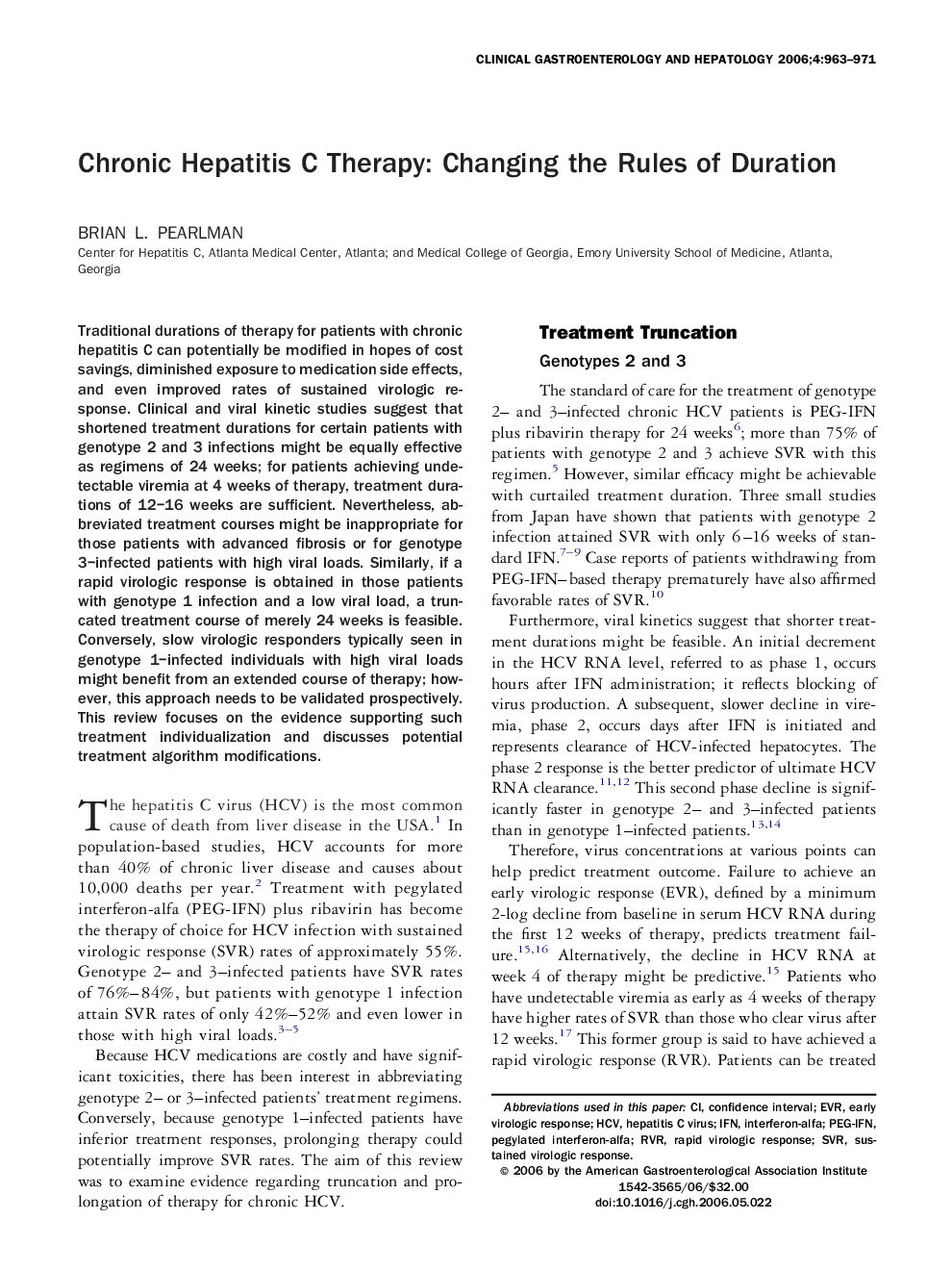| Article ID | Journal | Published Year | Pages | File Type |
|---|---|---|---|---|
| 3285613 | Clinical Gastroenterology and Hepatology | 2006 | 9 Pages |
Abstract
Traditional durations of therapy for patients with chronic hepatitis C can potentially be modified in hopes of cost savings, diminished exposure to medication side effects, and even improved rates of sustained virologic response. Clinical and viral kinetic studies suggest that shortened treatment durations for certain patients with genotype 2 and 3 infections might be equally effective as regimens of 24 weeks; for patients achieving undetectable viremia at 4 weeks of therapy, treatment durations of 12-16 weeks are sufficient. Nevertheless, abbreviated treatment courses might be inappropriate for those patients with advanced fibrosis or for genotype 3-infected patients with high viral loads. Similarly, if a rapid virologic response is obtained in those patients with genotype 1 infection and a low viral load, a truncated treatment course of merely 24 weeks is feasible. Conversely, slow virologic responders typically seen in genotype 1-infected individuals with high viral loads might benefit from an extended course of therapy; however, this approach needs to be validated prospectively. This review focuses on the evidence supporting such treatment individualization and discusses potential treatment algorithm modifications.
Keywords
Related Topics
Health Sciences
Medicine and Dentistry
Gastroenterology
Authors
Brian L. Pearlman,
